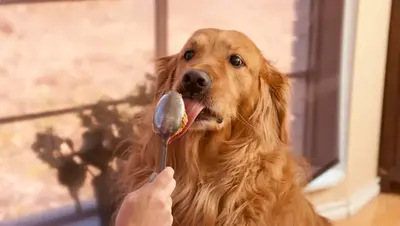Can Dogs Eat Olives?
- 21 Jun 2024
- 2m read

Yes, dogs can eat olives as long as they are pitted and plain, with no seasonings.
Is it OK for Dogs to Eat Olives?
Yes, dogs can eat olives.
Olives are not toxic to dogs and can even provide some health benefits, such as vitamins, minerals, and healthy fats. However, it's important to ensure that the olives are plain, unseasoned, and unsalted. Avoid giving your dog olives that are packed in brine or stuffed with ingredients like garlic or pimentos, as these can be harmful.
Always remove the pits to prevent choking hazards or digestive issues. As with any new food, introduce olives gradually and monitor your dog for any adverse reactions.
Can Dogs Have Black Olives?
Yes, dogs can eat black olives.
They are less bitter than their green counterparts and contain healthy fats and antioxidants.
Can Dogs Have Green Olives?
Yes, dogs can eat green olives.
They have a slightly different nutrient profile, often containing more sodium, which means you need to be extra cautious. Green olives can also be stuffed with various ingredients like garlic or pimentos, which are not safe for dogs. Always choose plain, unstuffed, and unsalted green olives if you want to share them with your pup.
Can Dogs Have Olive Oil?
Yes, dogs can have olive oil.
It can offer several health benefits when added to their diet in small amounts. Olive oil is rich in healthy monounsaturated fats, antioxidants and anti-inflammatory properties that can promote a shiny coat, improve skin health, support joint health, and boost the immune system.
The amount of olive oil your dog can safely consume depends on their size and dietary needs. As a general guideline:
Small Dogs (up to 20 pounds): 1/4 teaspoon per day
Medium Dogs (21-50 pounds): 1/2 teaspoon per day
Large Dogs (over 50 pounds): 1 teaspoon per day
Use high-quality extra-virgin olive oil and consult with your vet to ensure it's appropriate for your dog ton have olive oil.
Things to Consider Before Feeding Olives to Dogs
Before you start sharing olives with your pup, here are a few things to consider:
Moderation is key
Too many olives can lead to gastrointestinal upset or weight gain, due to their fat content.
They must be pitted
Always remove the pits from olives before giving them to your dog. Olive pits can be a choking hazard and cause blockages in the digestive tract.
Allergies and sensitivities
Monitor your dog for any signs of allergies or sensitivities, such as itching, vomiting, or diarrhoea, after eating olives.
Sodium content
Avoid olives that are high in sodium, such as those packaged in brine. High sodium intake can be harmful to dogs, leading to increased thirst and potential health issues.
Quality of olives
Opt for organic, fresh olives without any added preservatives or seasonings. This ensures that your dog is getting the healthiest option available.

.webp)


